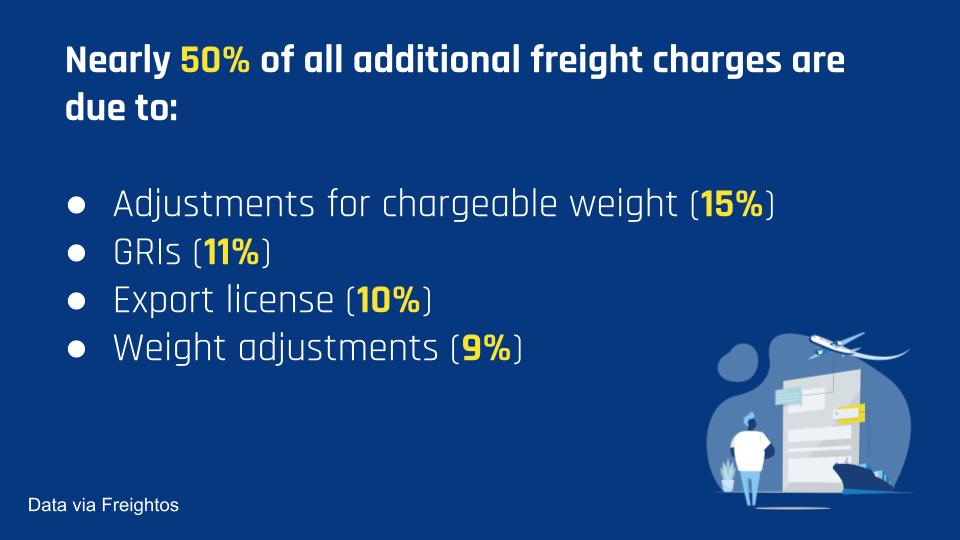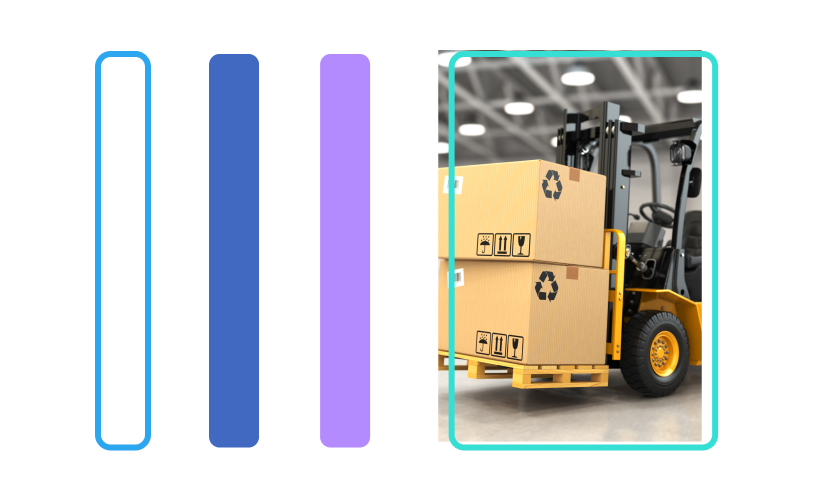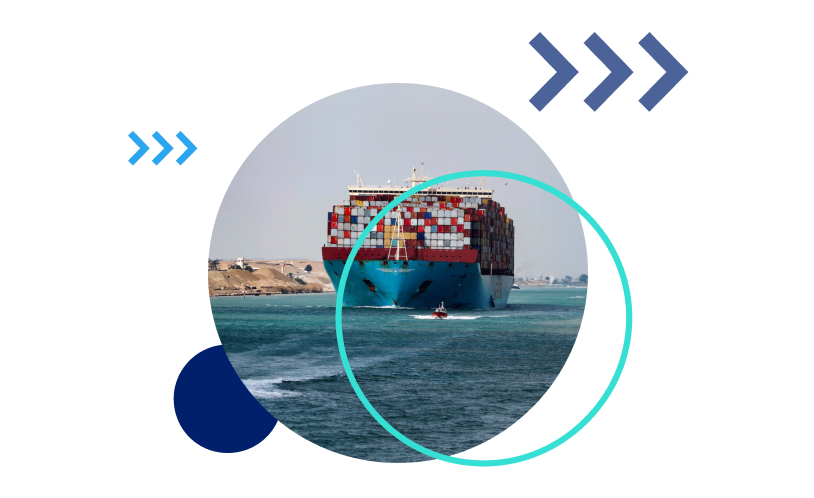As we’ve learned all too well over the past few years, when global crises happen, international freight prices are affected.
With unpredictable forces adding to shipping costs, it’s more important than ever to find ways to save and avoid extra charges.
Luckily, there are some freight charges that are more predictable – and even preventable. We’ve put together a list of some of the most common extra charges, and how to avoid them – or at least minimize the costs. Keep reading to learn more, or download our easy-to-use checklist below.
How to reduce freight costs
Almost 50% of additional charges that shippers face after booking are caused by weight adjustments, GRIs, and not having the proper export license. We’ll explore these and several other common freight charges.
6 simple ways to reduce your freight costs are:
- Make sure your goods are weighed accurately
- Have the correct export license
- Be mindful of General Rate Increases (GRIs)
- Arrange prompt pickup from the port
- Understand special fillings fees
- Palletize correctly

Inaccurate weight or dimensions
It’s critical to weigh and measure your goods accurately. According to Freightos data, over 20% of unexpected charges are due to weighing and measuring errors.
Here are some things to keep in mind:
Packaging adds up
Make sure you include all packaging, even pallets, in your goods’ dimensions. Every bit of space matters, whether it’s taken up by goods or by bubble wrap.
Understand your chargeable weight
The cost of freight is determined by both weight and size. If goods were charged only by weight, carriers would refuse to ship light, bulky items because they would fill a vessel’s space before hitting the weight limit – and the carrier would lose money. That’s why the volumetric weight calculation, which accounts for volume in addition to weight, is the standard measurement for shipping.
This means your goods’ actual weight is not always the weight they are charged for. Instead, they will be charged either for actual weight, or for volumetric weight, whichever is higher. This final number is called chargeable weight – and knowing your shipment’s chargeable weight will give you a much more accurate idea of your total cost.
To calculate chargeable weight – and to watch a video explainer about it – head over to our chargeable weight page.
Note: if you’re shipping with Freightos.com, you don’t need to know your chargeable weight. Just enter your dimensions and we’ll calculate chargeable weight for you.
Lacking the correct export license
To export goods from any country, you need an export license. In most cases, your supplier will provide this document.
If your supplier doesn’t provide an export license, the freight forwarder will take care of obtaining one at an additional cost.
Check with your supplier to make sure they will supply the licenses you need to get your goods moving – without surprises down the line.
GRIs
GRI stands for general rate increase. Carriers may add them to ocean freight costs on the 1st and the 15th of each month. When carriers increase the cost of the freight, it is passed on to forwarders, and then to importers and exporters.
Consider the possibility of GRIs when planning your shipment timing. GRIs apply to the time your goods are loaded, not to the time you book, soo if you book too far in advance, you could be subject to a rate increase by the time your goods are loaded.
Booking your shipment once your goods are ready while allowing a few days for them to be picked up and delivered to the port helps ensure that the price you booked is the price you pay.
Delays in pickup from the port
If you’re shipping a full container, arrange prompt pickup from the port. Containers that linger too long at the port incur charges known as demurrage. Similarly, containers need to be returned to the port on time or detention charges will accrue.
Of course, with current levels of port congestion and delays, these charges are hitting harder than ever. Legal cases aimed at making detention and demurrage charges fairer and less cumbersome are underway.
Special filings
If you’re importing something that needs special approval, you will need to file extra paperwork for your customs entry and pay extra fees.
For example, if you are importing food items, you may need to file an FDA entry with your customs filing.
Or, if you are importing copyrighted material, you’ll need to take care of compliance, or be subject to fees or confiscation of goods.
Palletization fees
When it comes to packaging, make sure your palletization is done correctly. One major factor to look out for is fumigation. Pallets entering the US must undergo fumigation and carry the proper certification.
If your goods are packed on pallets that lack certification, they will need to be repacked, which means additional pallet costs.
As mentioned, it’s also always important to include pallet dimensions in your weights and measures.
No one enjoys getting hit with extra charges. But you can usually avoid these freight costs by working with your providers and planning carefully.
For information on how changes in the shipping industry since the start of the coronavirus outbreak have affected prices, head over to our shipping updates page.



